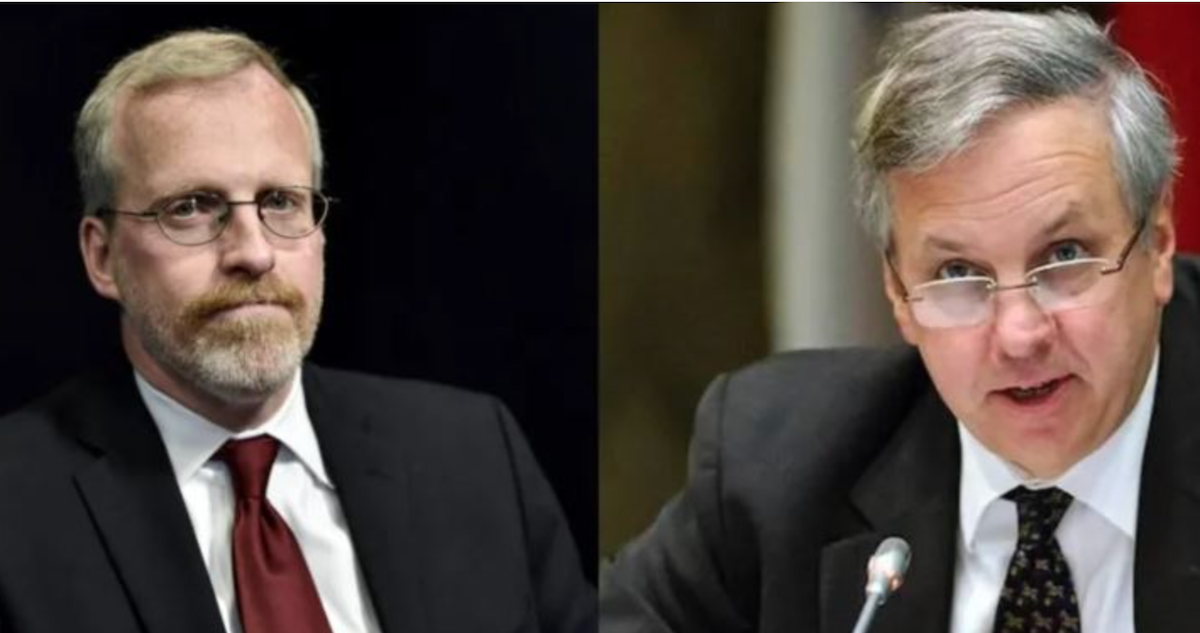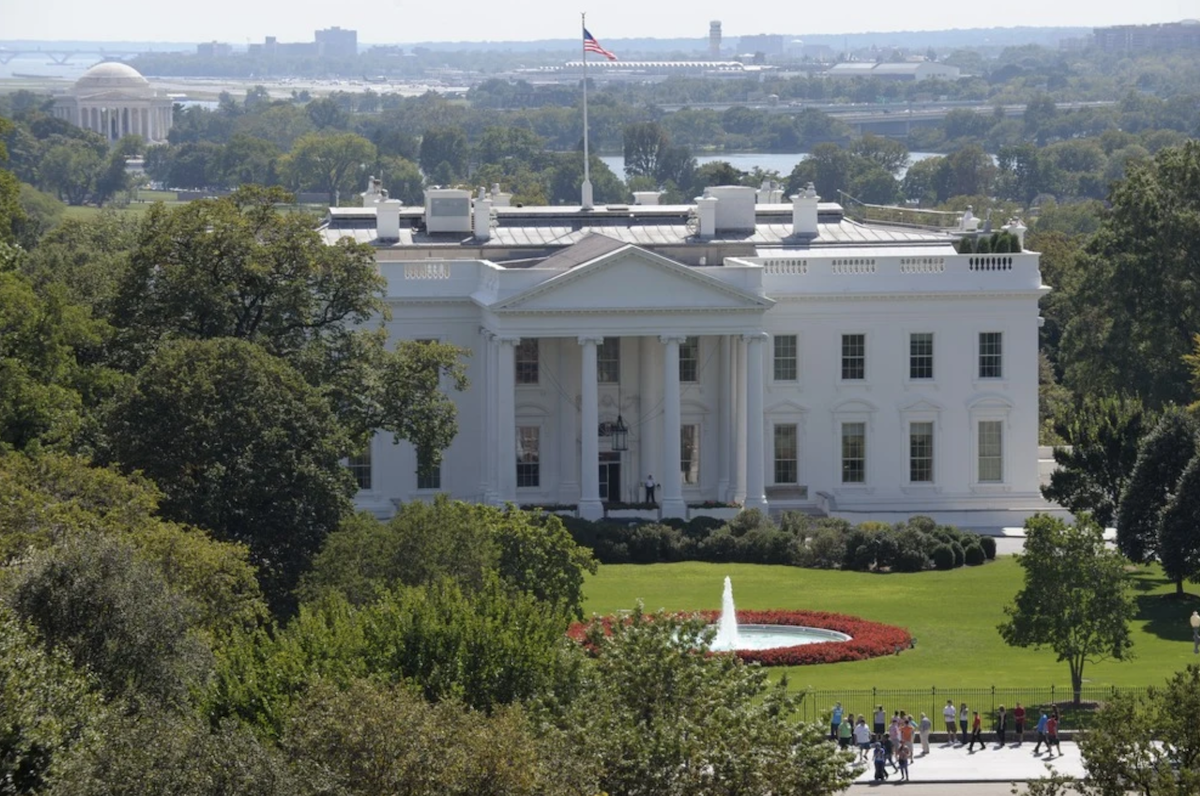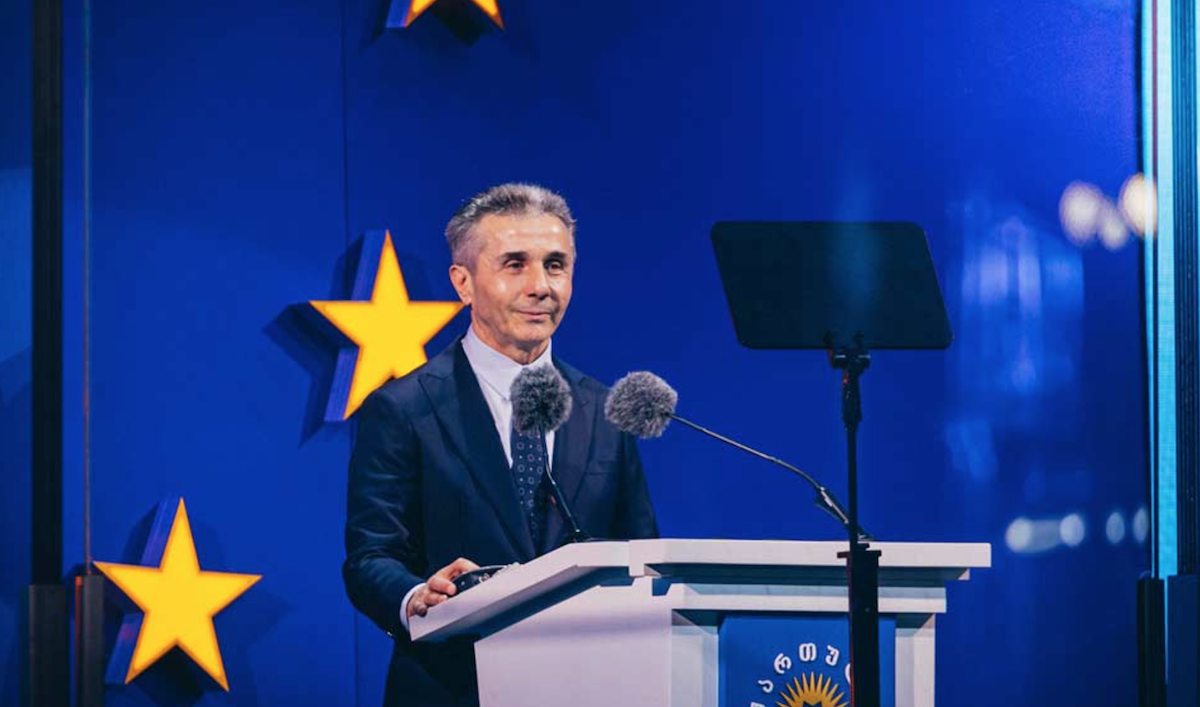
Former U.S. Ambassador to Georgia Ian Kelly and former Assistant Secretary of State, now Executive Director of the George W. Bush Institute, David Kramer, published their perspective on the situation in Georgia in The Hill and called on the Biden administration to impose additional sanctions on Georgia’s ruling party.
According to Kramer and Kelly, the U.S. visa and financial sanctions imposed this month on representatives of the ruling Georgian Dream and the Georgian government did not target oligarch Bidzina Ivanishvili, who they say is responsible for Georgia’s “authoritarian and pro-Russian course.”
They argue that this sanctions package was insufficient, and the U.S. must clearly state it will leverage financial pressure against Ivanishvili and his party if they continue on a “destructive” path for the Georgian people and U.S.-Georgia relations.
The U.S. should make it clear to Ivanishvili that if he rigs the October elections in his favor or carries out the threat to ban the opposition, he and his billions will face the full impact of U.S. Treasury sanctions, the politicians argue.
The opinion piece also highlights the “foreign agents” law passed by Georgian Dream, the anti-LGBT propaganda law, and Ivanishvili’s claim that Mikheil Saakashvili, not Russia, is to blame for the 2008 war.
The U.S. Treasury Department has imposed sanctions on the head of Georgia’s special forces, Zviad Kharazishvili (known by the nickname Hareba), his deputy Mileri Lagazauri, as well as the leaders of the pro-Russian Alt-info movement, Konstantine Morgoshia and Zurab Makharadze.
Additionally, the State Department has introduced visa restrictions against more than 60 members of the Georgian government and parliament, including their families, for “undermining democracy in the country.”
Notably, like Hareba, his deputy was also added to the so-called “Magnitsky list.” Both high-ranking officials are linked to violence against opponents of the “foreign agents law” [or the Russian law, as it is commonly referred to].
The U.S. Treasury Department stated that all property and assets of these individuals located in the U.S. or in countries under U.S. jurisdiction will be frozen.
Earlier, on June 6, the State Department announced a sanctions package that includes visa restrictions, initially affecting about 30 individuals.
On May 24, U.S. Secretary of State Antony Blinken announced a new visa restriction policy for Russian law enforcement officials. Blinken also mentioned that the U.S. will significantly reassess its relationship with Georgia.


